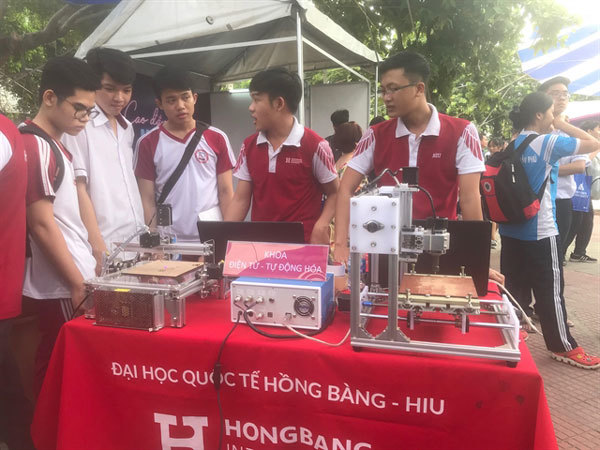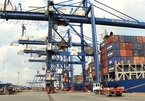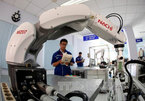 |
| Hong Bang International University provides career counselling to high school students at a fair held last year. The university is launching new programmes to meet labour market trends. VNS Photo Gia Loc |
Public universities have created new programmes following a regulation that expanded university autonomy in the amended Law on Higher Education that took effect last July.
The University of Science under the Vietnam National University-Ho Chi Minh City, for instance, will launch majors in medical physics, data science, applied mathematics, mathematics and computers, and geological engineering.
Phung Quan, head of information and communication at the university, told Việt Nam News: “The major of medical physics will offer professional knowledge about radiation doses and safety in health facilities.”
Students also will be taught diagnostic skills and how to use radiation machines, Quan said.
The data science major is essential to train the workforce for Industry 4.0, especially in Big Data, because of its application in every sphere.
The major of applied mathematics, mathematicsand computers will serve in data science and other sectors like finance and banking.
The geological engineering major will serve to evaluate forecasts and address solutions for prevention and reduction of influences caused by geologic phenomena such as seafloor spreading, mountain building, volcanoes, earthquakes, faulting, and others, Quan said.
Vietnam National University in Hanoi will include 17 new majors, including data science, electronic engineering and computers, management of urban development, and others.
Private universities will also launch new majors to attract students and meet future labour market demands.
New majors at Hong Bang International University will include midwifery, general medicine, oral health (bachelor's degree), digital marketing, management of natural resources and environment, biomedical engineering, industrial management, AI, biotechnology, electronic engineering and urban infrastructure engineering.
“The country is developing in many different sectors, including industries in the process of transformation, from mechanics to automation to digitalisation, with a high demand for electronic engineers,” said Dr Ho Thanh Phong, rector of Hong Bang International University.
More staff for industrial management will also be needed, he added.
“Marketing on social media in the country is strongly developing, leading to a great need for a digital marketing workforce,” Phong said.
In addition, hospitals in the country will need more biomedical engineers, he added.
Hoa Sen University will launch new training programmes in Japanese studies, American studies, event administration, digital art, insurance, and e-commerce.
The Ministry of Education and Training last year issued a circular on the required conditions and procedures for launching new training programmes, suspending enrollment, and withdrawing the approval of new training programmes for bachelor degrees.
Under the circular, universities must have at least 10 permanent full-time lecturers for new majors and ensure facilities such as labs, workshops for students to practise, and others.
They also must have libraries and electronic libraries to meet teaching, researching and learning needs of lecturers and students.
Many private and public universities are using available lecturers and facilities to teach classes for the new majors, but are also recruiting more lecturers and investing further in facilities. VNS

Logistics enterprises, schools work to close skills gap
With e-commerce and automation changing the landscape of the logistics sector dramatically, there will be a focus on re-skilling the existing workforce in technology, which will improve the competitiveness of the logistics industry.

Trade unions, better workforce needed for Industry 4.0 era
The quality of Vietnam’s workforce and the role of trade unions in protecting workers must be improved to meet the demands of the 4.0 industry era, experts said during a conference on work quality in foreign-direct invested companies.
 Many public and private universities throughout the country in the 2020-2021 academic year will launch new majors to meet labour market trends and demands.
Many public and private universities throughout the country in the 2020-2021 academic year will launch new majors to meet labour market trends and demands.